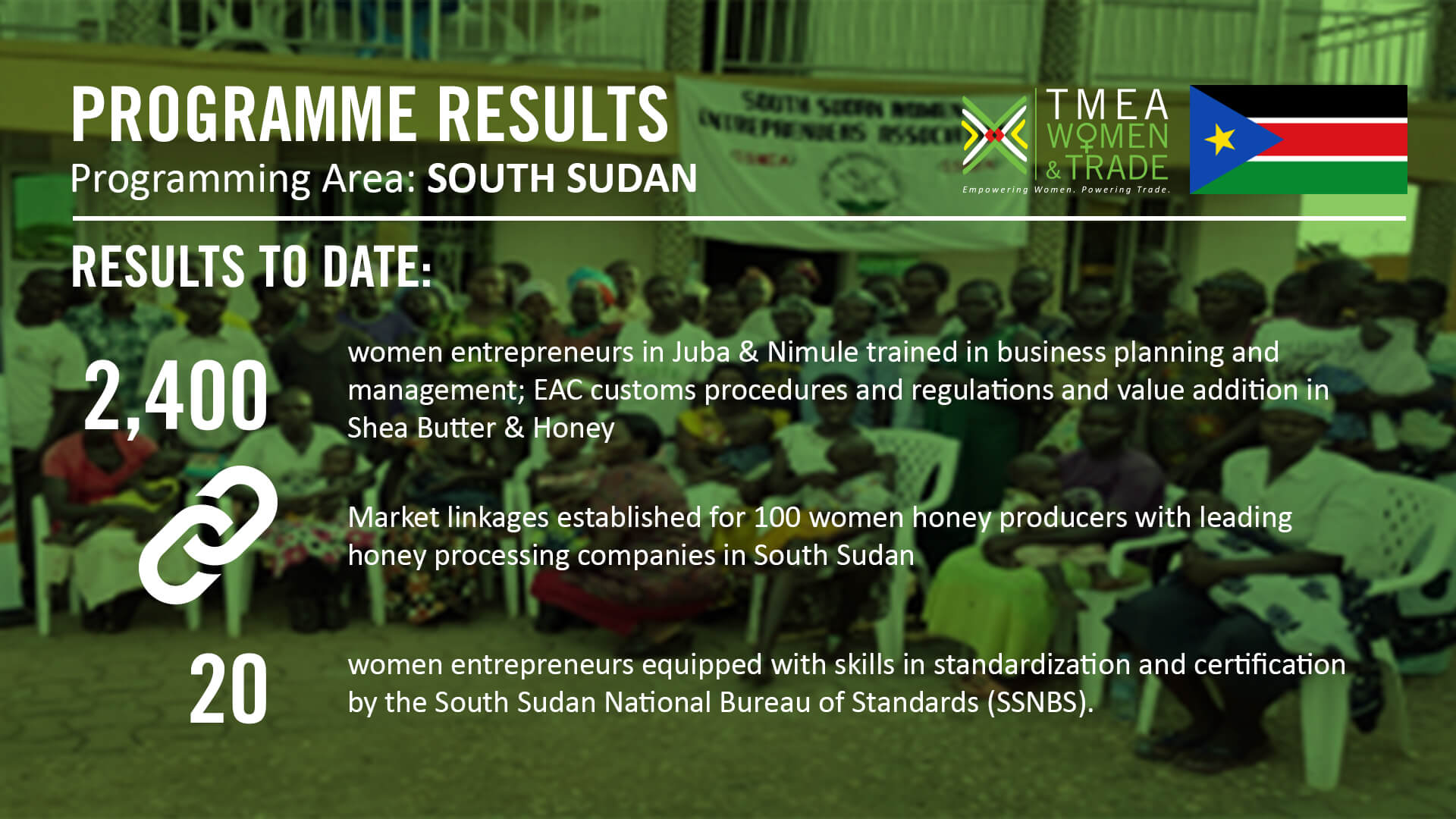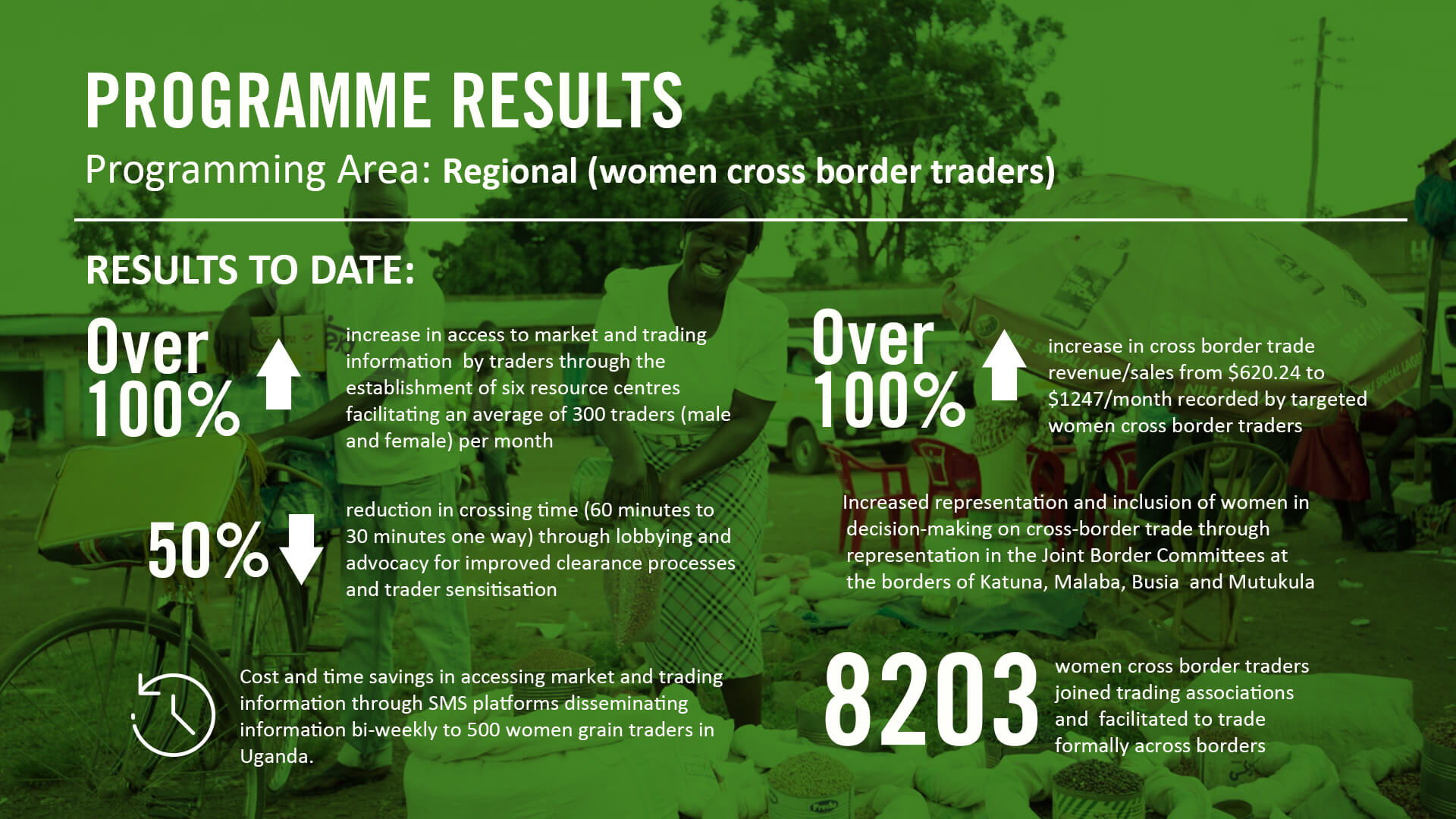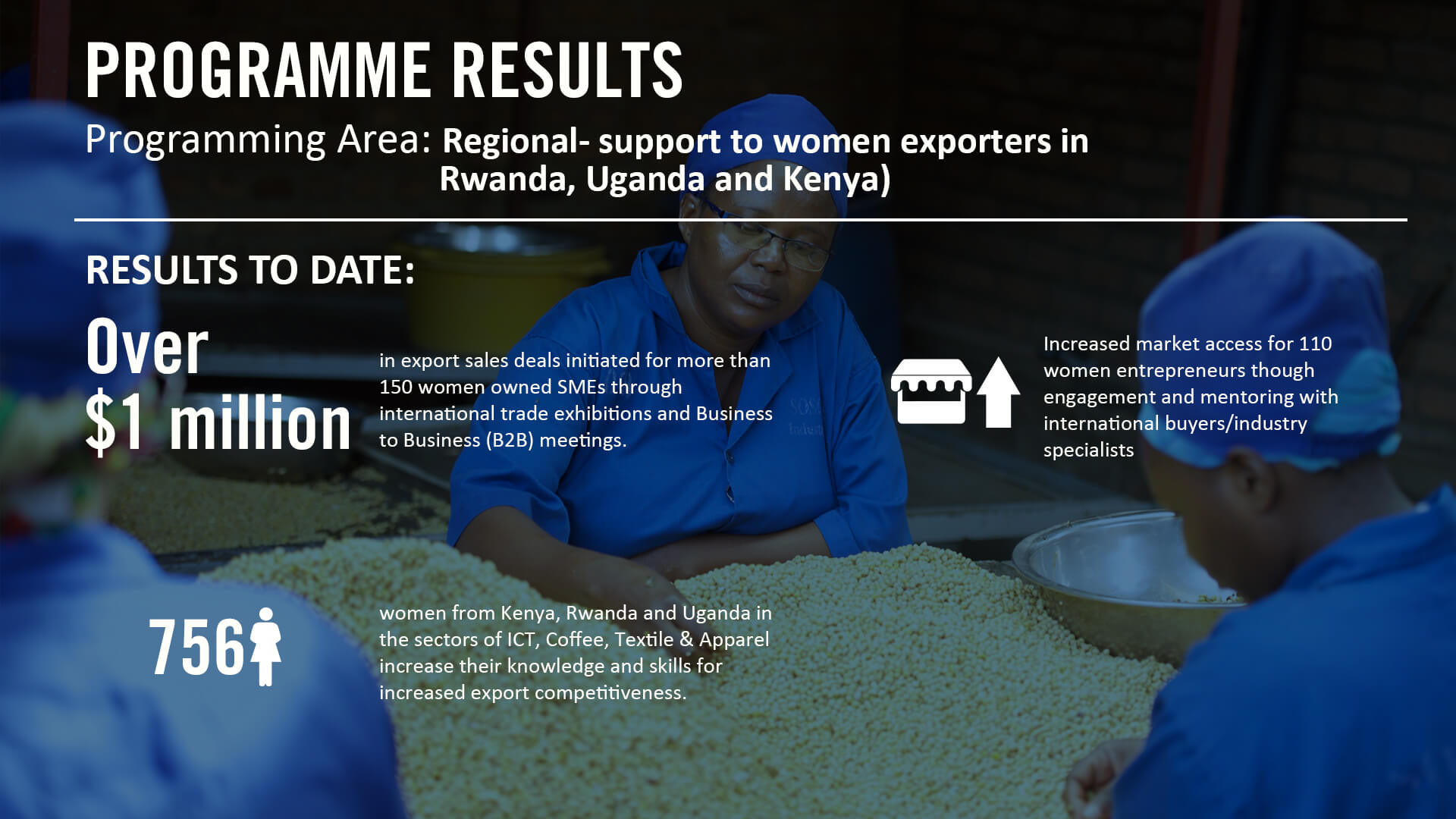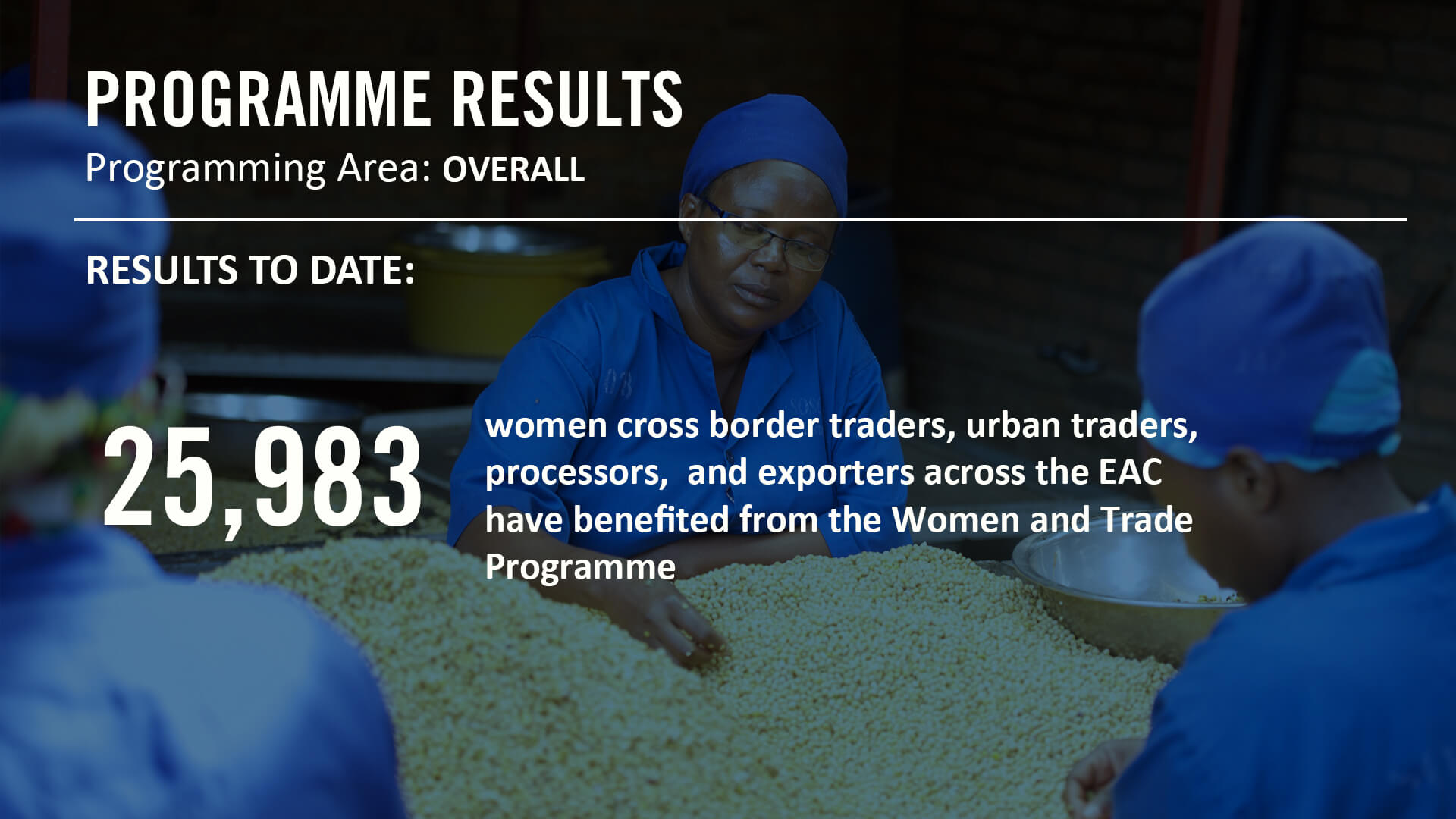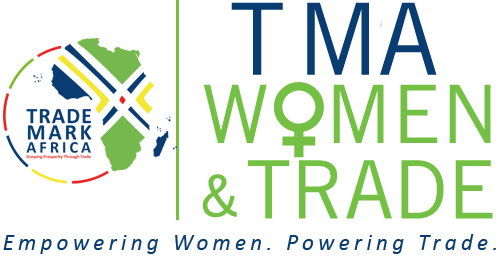

EMPOWERING WOMEN, POWERING TRADE
When women trade, economies growWomen’s economic empowerment has a significant impact on economies. Strategic interventions towards women can result not just in the improvement of the lives of the target groups, but in what has been described as ‘an astonishing cascade of positive benefits to whole nations…’
Source: WEF Global Gender Gap Report 2014
OUR RESPONSE
The Women and Trade programme seeks to increase incomes and improve livelihoods for women traders and women-owned enterprises through capacity building, addressing trade barriers and advocacy for policies that will create an enabling environment for women traders and women-led SMEs. This is part of a larger initiative by TMEA to tackle poverty and reduce inequality through increased trade and competitiveness.
| Country | Implementing Partner |
|---|---|
| Uganda | Uganda Women Entrepreneurs Association Ltd |
| Rwanda | Pro-Femmes/Twese Hamwe |
| Kenya | Joyful Women Organization |
| Tanzania | Tanzania Women Chambers of Commerce |
| Burundi | Association for Women Entrepreneurs in Burundi (AFAB) |
| South Sudan | South Sudan Women Entrepreneurs Association, Chamber of Women Entrepreneurs (COWE) |
| Regional: | EASSI, UNCTAD, ITC, EAWiBP |
TARGET BENEFICIARIES:
Women entrepreneurs, exporters, urban traders, manufacturers/processors and cross border traders.
PLAY YOUR PART
Policy Makers: Create an enhanced policy environment for women traders by-; enforcing enabling legislation and policies that improve women’s economic participation; enabling changes to policy and institutions that promote women’s participation in economic life which allow them to increase the use of formal trading channels.
Partners: Cultivate innovative and sustainable solutions that will foster empowerment and greater inclusivity for women in trade
Investors: Catalyse funding and foster strategic partnerships for the Women and Trade Programme.
CALL TO ACTION
Creating a sustainable impact on women in trade is a joint effort that will require a scale up of existing solutions and more innovative partnerships that will ensure greater inclusion of women in trade and further the prosperity of East Africa.
Join us. We appreciate the partnerships with the women groups, and our current donors. There is more to be done and TMA welcomes engagements with other donors and women organisations to improve lives and grow EAC economies through women empowerment in trade.
TALK TO US
2nd Floor, Equatorial Fidelity Centre -Waiyaki Way, Westlands
P.O. Box 313 00606
Nairobi, Kenya
+254 20 423 5000
[email protected]






